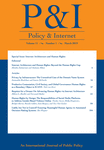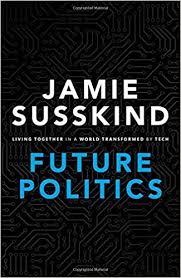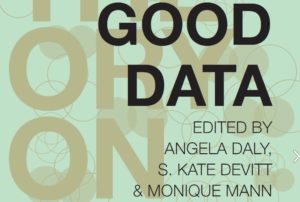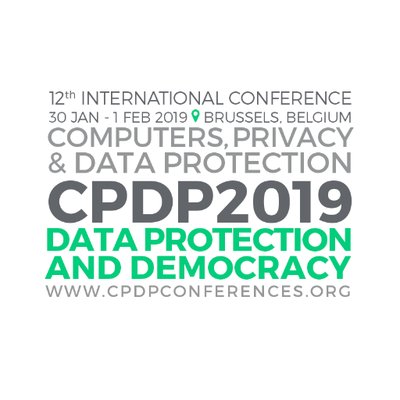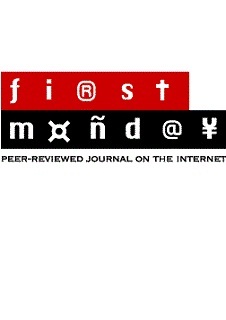How would datafication look like seen… ‘upside down’? What questions would we ask? What concepts, theories and methods would we embrace or have to devise? These questions are at the core of the two-day research seminar ‘Big Data from the South: Towards a Research Agenda’, scheduled to take place at the University of Amsterdam on December 4-5, 2018. The event is the third gathering of the Big Data from the South Initiative, launched in 2017 by Stefania Milan and Emiliano Treré (Cardiff University). It interrogates ‘Big Data from the South’, moving beyond the Western centrism and ‘digital universalism’ (Say Chan, 2013) of much of the critical scholarship on datafication and digitalization. It allows the Initiative to advance with charting its field of inquiry, including in the conversation practitioners from various corners of the globe and scholars from media studies, development studies, law, globalization studies, philosophy, science and technology studies, critical data studies (and counting).
Watch the event here.
The event is made possible by the generous funding of the Amsterdam Center for Globalization Studies, the Amsterdam Center for European Studies, the Amsterdam School of Cultural Analysis, and the European Research Council. With the participation of SPUI25 and Terre Lente.
Rationale
The workshop builds on the work of DATACTIVE and the Data Justice Lab in thinking the relation between data, citizenship and participation, but goes beyond engaging with a much needed debate at the intersection of feminist theory, critical theory, and decolonial thinking, which, ‘thinking in radical exteriority’ (Vallega, 2015, p. x), interrogates the coloniality of power. It intends to contribute also to the ongoing epistemological repositioning of the humanities and the social sciences in light of the raising inequality. We depart from the observation that, ‘while the majority of the world’s population resides outside the West, we continue to frame key debates on democracy and surveillance—and the associated demands for alternative models and practices—by means of Western concerns, contexts, user behavior patterns, and theories’ (Milan and Treré, 2017) . If on the one hand, ‘we need concerted and sustained scholarship on the role and impact of big data on the Global South’ (Arora, 2015, p. 1693), on the other ‘new’ theory and ‘new’ understandings are key, as ‘if the injustices of the past continue into the present and are in need of repair (and reparation), that reparative work must also be extended to the disciplinary structure that obscure as much as illuminate the path ahead’ (Bhambra & De Sousa Santos, 2017, p. 9). Thus, this event will be a stepping stone towards rethinking the sociotechnical dynamics of datafication in light of ‘the historical processes of dispossession, enslavement, appropriation and extraction […] central to the emergence of the modern world’ (Ibid.).
But what South are we referring to? First, our definition of ‘South’ is a flexible and expansive one, inspired to the writings of globalization sociologist Boaventura De Sousa Santos (2014) who is at the forefront of the reflection on the emergence and the urgency of epistemologies from the South against the ‘epistemicide’ of neoliberalism. Including but also going beyond the geographical South and emphasising the plurality of the South(s), our South is a place for and a metaphor of resistance, subversion, and creativity . Secondly, our notion emerges in dialectic interaction with the continuous critical interrogating and situating of our privilege as Western academics vs. the imperative to do ‘nothing about them without them’ (see Milan and Treré, 2017).
Participants (in alphabetical order)
Carla Alvial (NUMIES, Chile), Payal Arora (Erasmus University Rotterdam), Sérgio Barbosa (University of Coimbra), Davide Beraldo (UvA), Enrico Calandro (Research ICT Africa), Bernardo Caycedo (UvA), Fabien Cante (University of Birmingham), Alberto Cossu (UvA), Nick Couldry (LSE), Álvaro Crovo (ISUR, Colombia), Monika Halkort (American University of Lebanon), Becky Kazansky (UvA), Anja Kovacs (The Internet Democracy Project), Merlyna Lim (Carleton University), Joan Lopez (Fundacion Karisma), Aaron Martin (Tilburg University), Silvia Masiero (Loughborough University), Ulises Mejias (SUNY Oswego), Stefania Milan (UvA), Hellen Mukiri-Smith (Tilburg University), Nelli Piattoeva (University of Tampere), Anita Say Chan (Illinois, Urbana-Champagne), Gabriela Sued (Tecnologico de Monterrey), Anna Suman (Tilburg University), Linnet Taylor (Tilburg University), Gunes Tavmen (Birbeck College), Niels ten Oever (UvA), Emiliano Treré (Cardiff University), Guillen Torres (UvA), Etienne von Bertrab (UCL), Norbert Wildermuth (Roskilde University), Kersti Wissenbach (UvA)
Schedule
| DAY 1, December 4th |
| 15.00-16.30
@UvA library, Singel 425, room ‘Belle van Zuylen’ |
Open session: Can Data be Decolonized? Data Relations and the Emerging Social Order of Capitalism, with Nick Couldry (London School of Economics and Political Science) & Ulises A. Mejias (State University of New York at Oswego)
This talk (which draws on the author’s forthcoming book from Stanford University Press, The Costs of Connection: How Data is Colonizing Human Life and Appropriating it for Capitalism) examines how contemporary practices of data extraction and processing replicate colonial modes of exploitation. Couldry and Mejias present the concept of “data colonialism” as a tool to analyze emerging forms of political control and economic dispossession. To that effect, their analysis engages the disciplines of critical political economy, sociology of media, and postcolonial science and technology studies to trace continuities from colonialism’s historic appropriation of territories and material resources to the datafication of everyday life today. While the modes, intensities, scales and contexts of dispossession have changed, the underlying function remains the same: to acquire resources from which economic value can be extracted. Just as historic colonialism paved the way for industrial capitalism, this phase of colonialism prepares the way for a new economic order. In this context, the authors analyze the ideologies and rationalities through which “data relations” (social relations conducted and organized via data processes) contribute to the capitalization of human life. Their findings hold important implications for how we study the internet, and how we may advocate for the decolonization of data in the future.
Chair: Stefania Milan (DATACTIVE, University of Amsterdam) |
| 17.00-19.30 @Terre Lente, Westerstraat 55 |
Informal research session with light dinner & drinks (for subscribed participants only) |
| 20-21.30 @SPUI25, Spui 25 |
Public event: Big Data from the South: Decolonization, Resistance and Creativity, Payal Arora (Erasmus University Rotterdam), Nick Couldry (London School of Economics), Merlyna Lim (Carleton University) and Ulises A. Mejias (State University of New York, College at Oswego).
Datafication has dramatically altered the way we understand the world around us. Understanding the so-called ‘big data’ means to explore the profound consequences of the computational turn, as well as the limitations, errors and biases that affect the gathering, interpretation and access to information on such a large scale. However, much of this critical scholarship has emerged along a Western axis ideally connecting Silicon Valley, Cambridge, MA and Northern Europe. What does it mean to think datafication from a Southern perspective? This roundtable interrogates the mythology and universalism of datafication and big data, moving beyond the Western centrism and ‘digital universalism’ (Say Chan, 2013) of the critical scholarship on datafication and digitalization. It asks how would datafication look like seen… ‘upside down’? What problems should we address? What questions would we ask? We will explore these questions in conversation with four engaged academics: Payal Arora (Erasmus University Rotterdam), Nick Couldry (London School of Economics), Merlyna Lim (Carleton University), and Ulises A. Mejias (State University of New York, Oswego).
Chair: Stefania Milan (DATACTIVE, University of Amsterdam)
Moderator: Emiliano Treré (Data Justice Lab, Cardiff University)
Drinks will follow! |
| DAY 2, December 5th @e-lab, UvA Media Studies, Turfdraagsterpad 9 (for subscribed participants only) |
| 10.00-10.15 |
Welcome by Stefania Milan (coffee & tea in the room!) |
| 10.15-11.00 |
Setting the scene by Stefania and Emiliano Treré |
| 11.00-11.45 |
Workgroup slot 1 |
| 11.45-12.30 |
Workgroup slot 2 |
| 12.30-13.40 |
Short presentation by Tecnológico de Monterrey(Mexico) |
| 12.40-13.30 |
Lunch served in the room (by Terre Lente) |
| 13.30-14.15 |
Workgroup slot 3 |
| 14.15-15.00 |
Workgroup slot 4 |
| 15.00-15.45 |
Workgroup slot 5 |
| 15.45-16.00 |
Stretching break |
| 16.00-17.00 |
Plenary session: Reporting back and next steps |
Follow the conversation online with the hashtag #BigDataSur
Check out the blog and subscribe to the mailing list!

